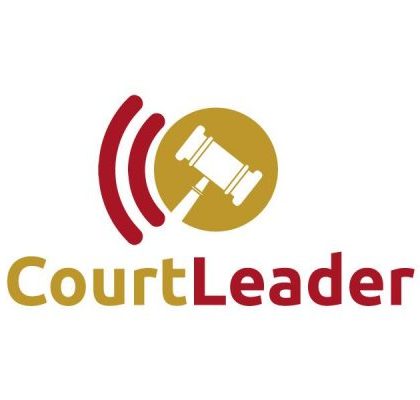As I wrote and recommended in the last Vantage Point posts, I do my best to stay informed about current developments. Almost every day I am getting information about how the use of artificial intelligence (AI) is being rapidly deployed around the world (self-driving cars got your attention lately?). Articles are being written, conferences are devoting sessions to the topic (more on that below), there are lots of related posts on social media, etc. Here are a few of the sources of information about AI that have me wondering about the use of AI in government in general, and whether courts are taking advantage of it:
- Government Technology recently published an article about AI, speculating about how ready governments are to deploy AI: http://www.govtech.com/products/Is-Government-Ready-for-AI.html. The article concludes that although some AI functions are being used, much still needs to be done to fully take advantage of AI.
- The Dutch Parliament and the European Commission on the Efficiency of Justice (CEPEJ) recently addressed the use of artificial intelligence in the courts. Dory Reiling summarized this well on her blog (http://doryreiling.blogspot.com/2018/07/?m=0), describing how AI can be applied in the structuring of information and in advising, predicting, and profiling functions.
- The Joint Technology Committee (JTC) of NACM and COSCA has done a fine job of publishing several “resource bulletins” on related topics (http://www.ncsc.org/About-us/Committees/Joint-Technology-Committee.aspx). In particular, the “Courts Disrupted” bulletin addresses how AI is a significant disruptor to how we do our work.
- Elsewhere on the Court Leader site we recently published (and just posted an updated v.2!) an excellent article by Alan Carlson, “Using Artificial Intelligence and Big Data to Develop Tools Used in Courts” (https://courtleader.net/2018/04/24/using-artificial-intelligence-and-big-data-to-develop-tools-used-in-courts/). This article outlines various AI approaches and benefits, along with an extensive discussion of the risks (such as bias) and their mitigation. Alan is also presenting “Artificial Intelligence in the Courts” at next week’s annual NACM conference. I have volunteered to host this session, and I anticipate reporting on this session (as well as others I attend) in the next Vantage Point blog post.
All of this has led me to think about how courts may be adopting artificial intelligence. How is AI currently being used, and what are future possible applications? Here are some:
- Online dispute resolution (ODR)
- Differentiated case management (DCM)
- E-filing document and standards compliance
- Calendar management/judicial tools
- Document preparation
- Management dashboards
- Jury management (qualification & selection)
- Litigant portals and content
- I.T. security
- Pretrial/Probation (risk assessment and release recommendations, compliance monitoring)
- Human resources (hiring processes, performance assessment)
- Voice and handwriting recognition
- Data extraction and redaction
- Robotics (physical or virtual, such as chatbots)
There are undoubtedly many other possible applications of AI in the courts. What have I missed? How are your courts already using AI (or have plans to use AI)? What obstacles or issues have you encountered, and are the benefits worth it?
There undoubtedly are many, many issues to be considered in the adoption of artificial intelligence. The importance of this is underscored by the fact that Harvard’s Berkman Center for Internet and Society, in conjunction with the MIT Media Lab, has launched the Ethics and Governance of Artificial Intelligence Initiative to consider many important factors: http://cyber.harvard.edu/topics/ethics-and-governance-ai. Despite the issues and risks, I think every court should be actively assessing and carefully deploying AI functions to improve services – the potential is huge. I plan on learning more at the NACM conference, and for those interested further, the upcoming eCourts Conference in December (https://e-courts.org/) has AI on its agenda.
In my next Vantage Point post I will be summarizing what I learned at the NACM conference in Atlanta, including the AI session. I hope to see many of you there!
As always, comments are welcome. Thanks in advance for your help.



Norman,
Good note, thanks for the heads up about AI, and relevant articles.
Here are a couple more articles I would recommend to your readers:
“For Artificial Intelligence to Thrive, It Must Explain Itself”, The Economist, Feb 15th 2018, at: https://www.economist.com/news/science-and-technology/21737018-if-it-cannot-who-will-trust-it-artificial-intelligence-thrive-it-must
and
“Algorithmic Accountability: A Primer“, by Joan Donovan, Robyn Caplan, Jeanna Matthews, and Lauren Hanson, Data & Society, April 18, 2018, at: https://datasociety.net/output/algorithmic-accountability-a-primer/
Also, a couple of suggestions for your list of possible applications:
– legal research for judges and research attorneys
– facial recognition of defendants appearing in court
– social media monitoring of people on probation/parole
– sentencing decision support
LikeLiked by 1 person
This is great — a very useful article as an overview of where the courts are now, and great links to Dory’s, Alan’s, and others’ writings!
LikeLike
Thanks, Margaret. I continue to be intrigued by the AI possibilities in the legal system. Interesting times!
LikeLike